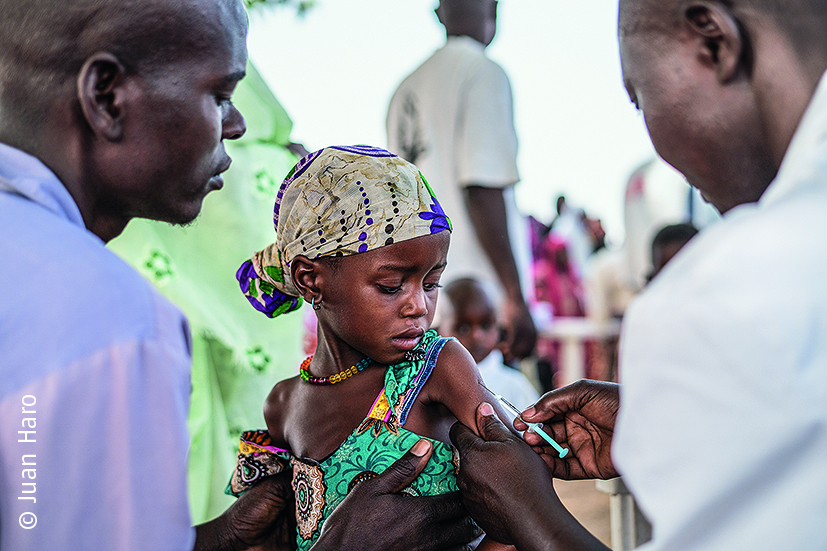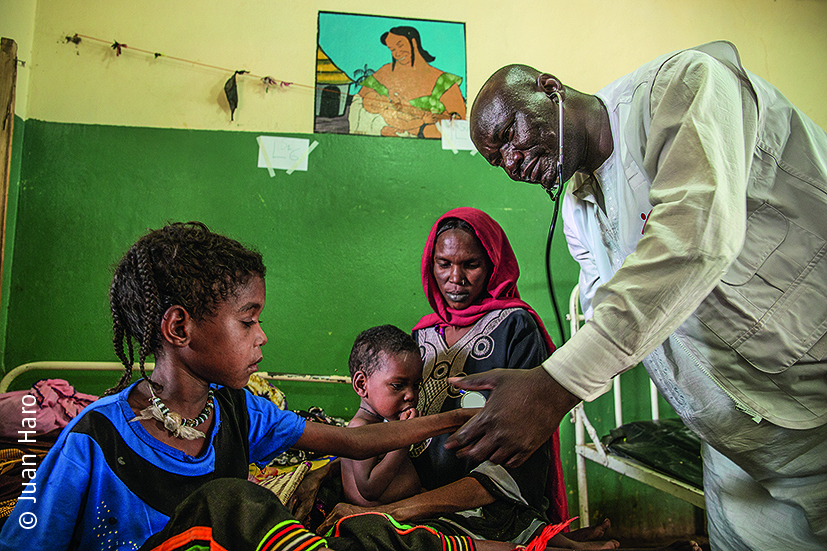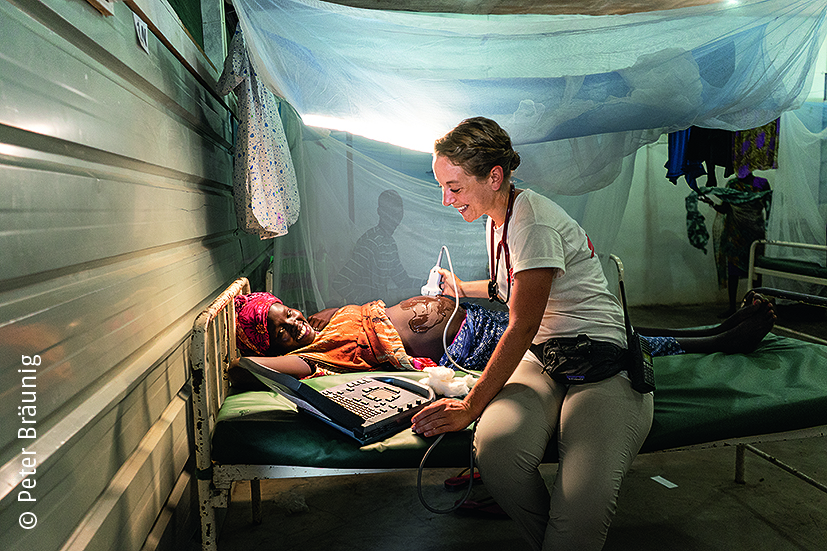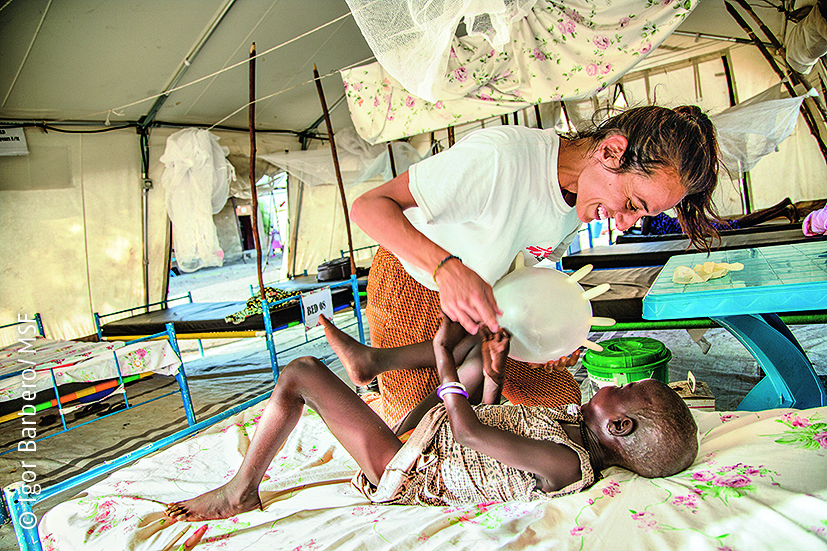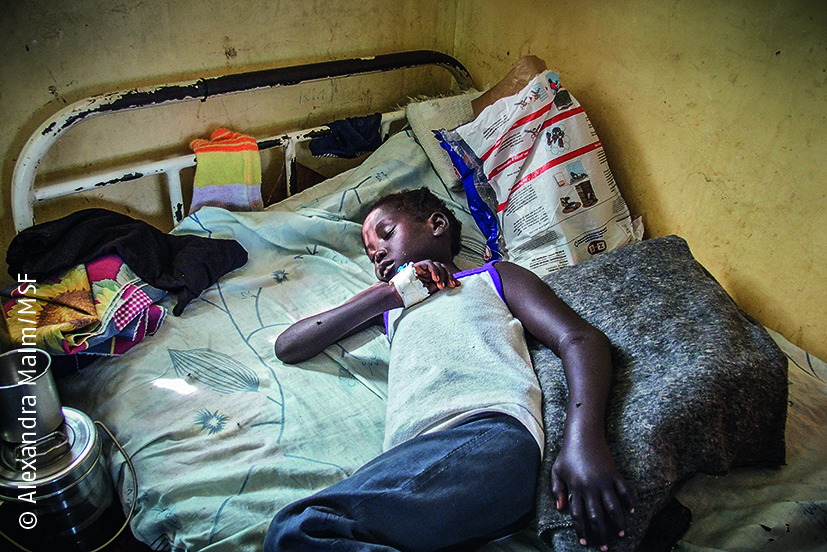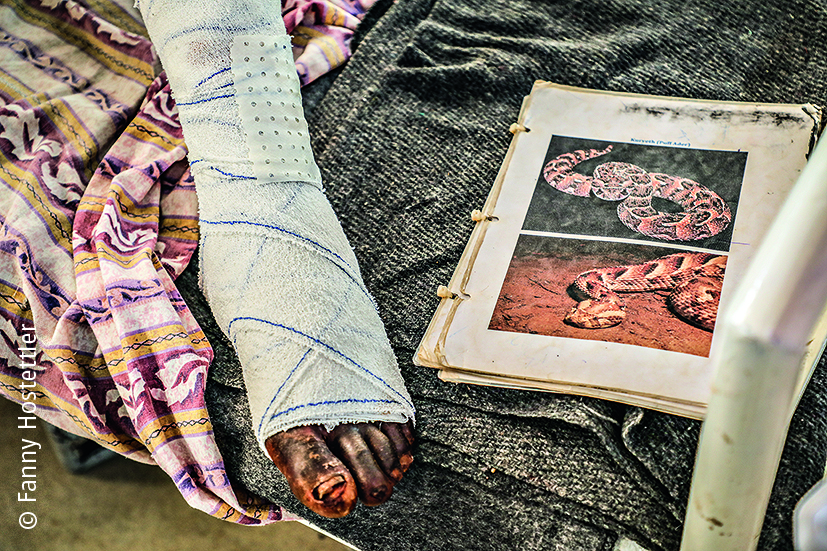Projects 2020
Chad: 200,000 Children vaccinated against measles
A measles epidemic has been raging in large parts of Chad for more than a year. To prevent it spreading, 95 percent of children must be vaccinated – but in Chad, only 37 percent of children under five are vaccinated. Measles can be life-threatening, especially in combination with malnutrition. An emergency team of Doctors Without Borders treated measles sufferers in the Am Timan region. The organisation also launched several large-scale vaccination campaigns in partnership with the Chadian Ministry of Health. More than 200,000 children were vaccinated against measles to prevent its spread.
With 3,000 €, Doctors Without Borders can buy vaccines to immunise 12,000 children against measles. With 5,000 € or 10,000 €, the number of children can be 20,000 or 40,000 respectively.
Chad: Vaccination campaign by Doctors Without Borders in the Am Timan region. Four-year-old Achta receives her first measles vaccination of her life. In total, the teams of Doctors Without Borders protected more than 200,000 children.
Chad: The doctor Ollivier Allarasemm from Doctors Without Borders treats a seven-year-old girl suffering from measles. Measles can be life-threatening, especially for malnourished children.
Southern Sudan: Help for People on the Run
Nearly two million people live in southern Sudan on the run. Wars and violence have forced them to leave their homes. Recently there were devastating floods caused by continuous rainfall. Doctors Without Borders provides comprehensive emergency aid throughout the country and provides medical care in many places where there would otherwise be none. The teams care for malnourished children, treat malaria patients, assist with births and fight epidemics. Every year, Doctors Without Borders provides more than one million medical consultations in Southern Sudan.
With 5,500 €, Doctors Without Borders can help 550 women to bring their children into the world safely – with the necessary sterile material. With 3,000 € or 11,000 €, the number of women would be 300 and 1,100 respectively.
Southern Sudan: Doctor Katharina von Goldacker examines her patient Nyajuok Thot Tap, who is pregnant in the eighth month. Doctors Without Borders is one of the few organisations that provide help in the region around Lankien.
South Sudan: A moment of joy in the midst of displacement and violence. The nurse Bárbara García from Doctors Without Borders plays with her patient Nyamach with a glove balloon.
Snake Bites: Fighting a Forgotten Disease
Poisoning by snake bites is a little-known health crisis. Every year around 2.7 million people worldwide are bitten by venomous snakes. 100,000 bite victims die, many others suffer lifelong disabilities and disfigurement. Doctors Without Borders is one of the few organisations that helps: The teams treat several thousand patients every year, test anti-toxins and map snake bite hotspots. In addition, Doctors Without Borders advises the World Health Organization (WHO) and national governments so that bite victims all over the world finally have access to effective help free of charge.
With 5,000 €, Doctors Without Borders can treat, seven people who have been bitten by a venomous snake with antidotes. With 3,500 € or 10,000 €, the figure would be five or 14 people respectively.
Southern Sudan: Nyajinma was asleep when a snake bit her. Her mother ran with her for an hour and a half to the nearest health centre – but the necessary therapy was not available. She was sent to Doctors Without Borders. Here she finally received the life-saving antidote.
